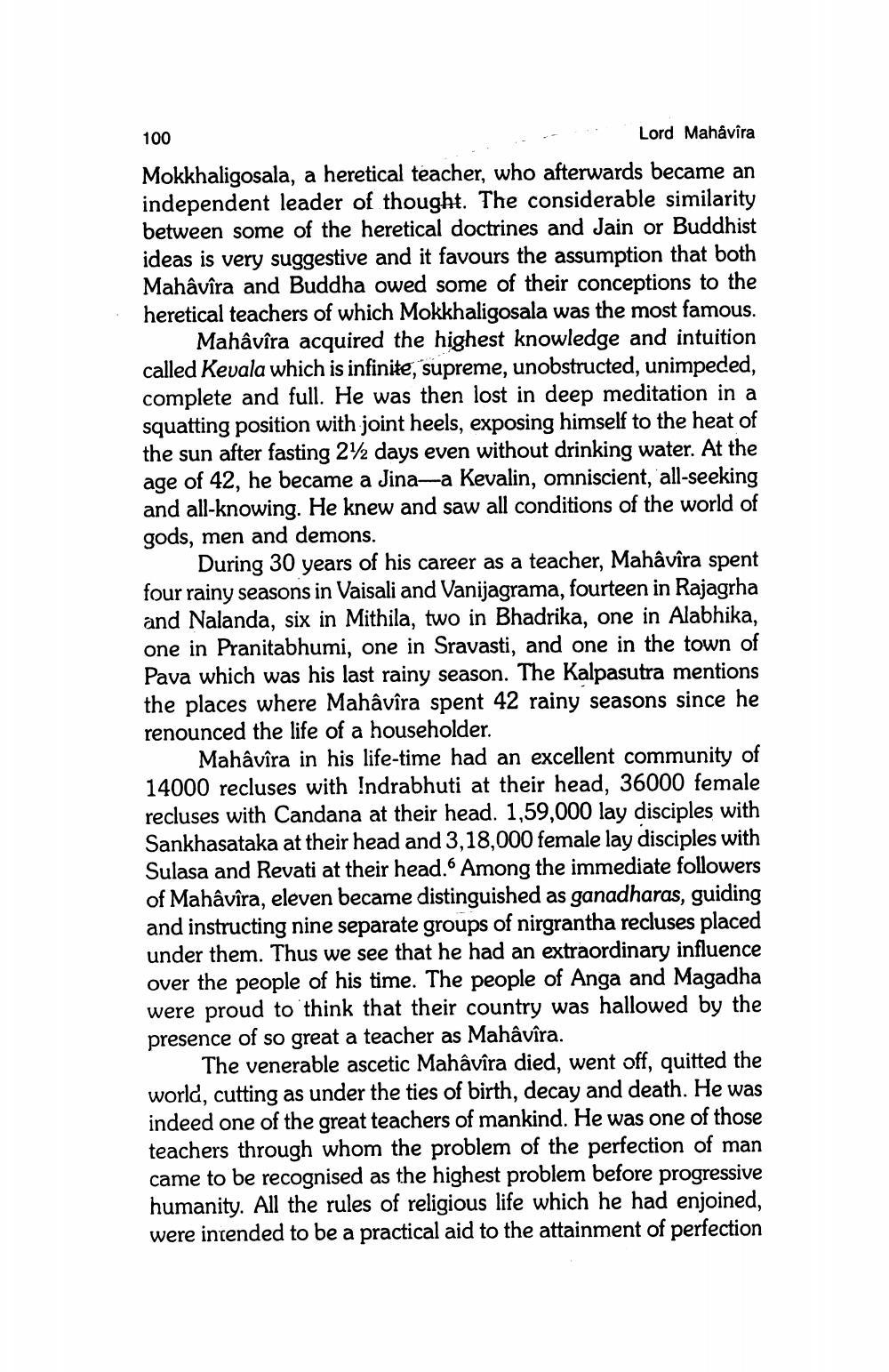________________
100
Lord Mahâvîra Mokkhaligosala, a heretical teacher, who afterwards became an independent leader of thought. The considerable similarity between some of the heretical doctrines and Jain or Buddhist ideas is very suggestive and it favours the assumption that both Mahâvîra and Buddha owed some of their conceptions to the heretical teachers of which Mokkhaligosala was the most famous.
Mahâvîra acquired the highest knowledge and intuition called Kevala which is infinite, supreme, unobstructed, unimpeded, complete and full. He was then lost in deep meditation in a squatting position with joint heels, exposing himself to the heat of the sun after fasting 2/2 days even without drinking water. At the age of 42, he became a Jina-a Kevalin, omniscient, all-seeking and all-knowing. He knew and saw all conditions of the world of gods, men and demons.
During 30 years of his career as a teacher, Mahâvîra spent four rainy seasons in Vaisali and Vanijagrama, fourteen in Rajagrha and Nalanda, six in Mithila, two in Bhadrika, one in Alabhika, one in Pranitabhumi, one in Sravasti, and one in the town of Pava which was his last rainy season. The Kalpasutra mentions the places where Mahâvîra spent 42 rainy seasons since he renounced the life of a householder.
Mahâvîra in his life-time had an excellent community of 14000 recluses with Indrabhuti at their head, 36000 female recluses with Candana at their head. 1,59,000 lay disciples with Sankhasataka at their head and 3,18,000 female lay disciples with Sulasa and Revati at their head. Among the immediate followers of Mahâvîra, eleven became distinguished as ganadharas, guiding and instructing nine separate groups of nirgrantha recluses placed under them. Thus we see that he had an extraordinary influence over the people of his time. The people of Anga and Magadha were proud to think that their country was hallowed by the presence of so great a teacher as Mahâvîra.
The venerable ascetic Mahâvîra died, went off, quitted the world, cutting as under the ties of birth, decay and death. He was indeed one of the great teachers of mankind. He was one of those teachers through whom the problem of the perfection of man came to be recognised as the highest problem before progressive humanity. All the rules of religious life which he had enjoined, were intended to be a practical aid to the attainment of perfection




